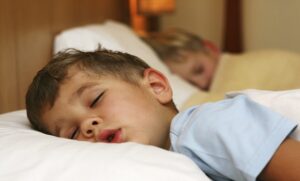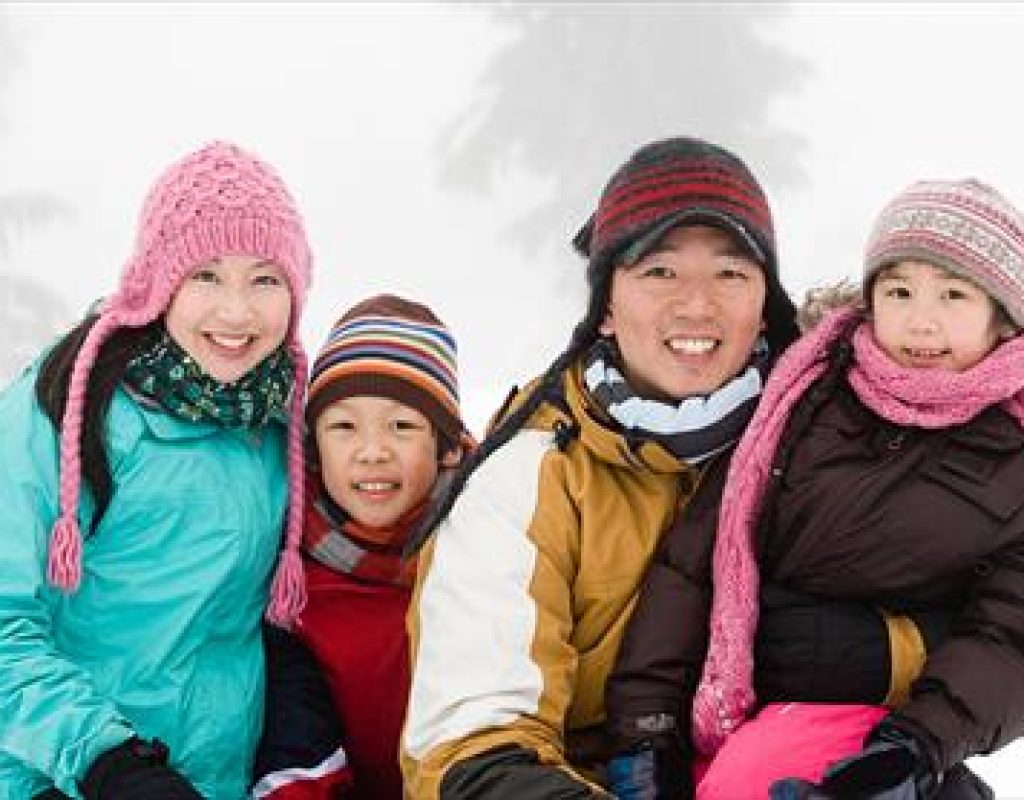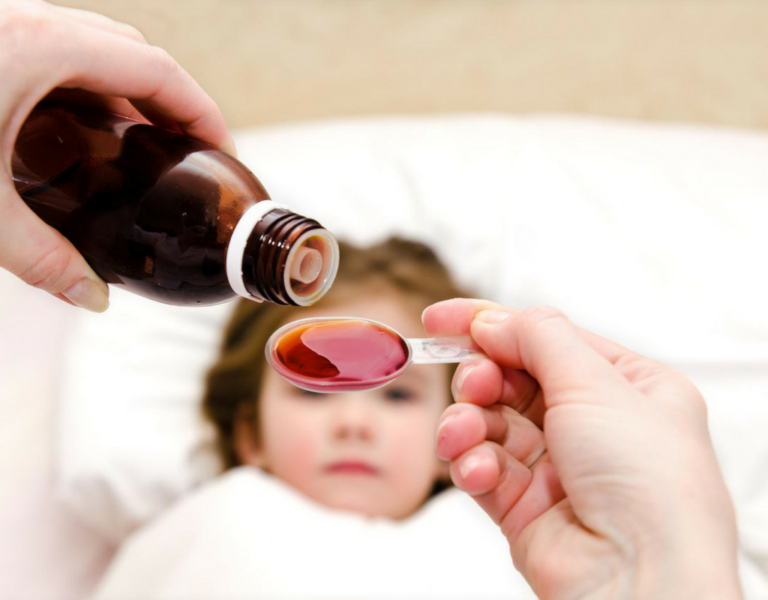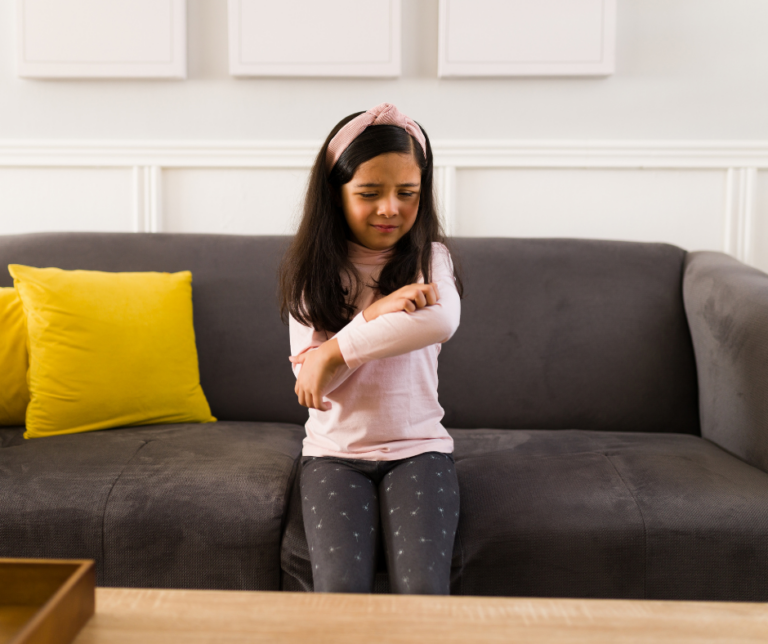Punxsutawney Phil may may have predicted an early spring, but rest assured we have plenty of winter weather left in the season. Here are some helpful tips on how to keep your family healthy during the cold weather months:
Dress for the cold
Whether you’re battling a teen who wants to wear shorts, a middle schooler who refuses to wear a coat, or a toddler begging to wear beach attire, teaching your child to dress appropriately for the cold can be a challenge. That said, proper clothing is crucial to keeping kids safe and healthy in winter weather.
Layering is key. For babies and young children, a good rule of thumb is to dress them in one layer of clothing more than what an adult would wear in the same conditions. But be careful — too many layers can cause overheating and sweating, which can actually make the child more susceptible to the cold.
A child’s head, face, ears, hands, and feet are most prone to cold exposure and frostbite so make sure that their cold weather gear includes hats, scarves, gloves or mittens and proper socks and footwear.
Snow days are great fun, but dressing warm isn’t the only concern. Snow can quickly penetrate fabrics and wet skin is cold skin. Keep your children dry by investing in waterproof outerwear including a parka or shell, gloves, and snowsuit or snow pants. Don’t forget their feet! Wet toes are especially sensitive to frostbite, so snow boots are also a cold weather staple.
Read more on proper cold weather attire for kids: https://www.aboutkidshealth.ca/Article?contentid=1940&language=English
Read more about cold weather safety: https://www.healthychildren.org/English/safety-prevention/at-play/Pages/Cold-Weather-Safety.aspx
Battle the bugs
With colder temps comes the cold and flu season. Flu is just now hitting its peak, and your best bet for avoiding the flu is getting immunized. Flu shots are recommended for children 6 months and older and it’s not too late to get them in if they haven’t had theirs yet.
Good hygiene can go a long way in preventing illness. Wash your hands. Often. Soap and hot water are your best defense against germs, so make sure your whole family washes frequently. Make it a habit to wash after using the restroom, upon entering the home, and before every meal. When soap and water are not available, use alcohol-based hand sanitizer.
Hygiene also extends to your surroundings. Cold viruses can sometimes survive on indoor surfaces for more than 7 days, so use cart wipes at the store, spray or wipe down book bags with a disinfectant, and leave shoes and outerwear by the front door. Keep counters clean and sanitized. Wash clothing in the hottest water the fabric will tolerate and regularly change and wash bedding. And don’t forget to change out toothbrushes every 3-4 months, or sooner, if the family member has been sick.
Read more about germ prevention strategies: https://www.healthychildren.org/English/health-issues/conditions/prevention/Pages/Germ-Prevention-Strategies.aspx

Live a Healthy Lifestyle
Nutrition, hydration, sleep and exercise all play important roles in the prevention of illness and the promotion of health. While an apple a day doesn’t necessarily keep the doctor away, a healthy diet full of nutrient rich foods may help your immune system stay strong. People tend to eat fewer fruits and vegetables in the winter, which is when your system may need them the most. Feed your family five servings of fruits and vegetables every day to give them adequate vitamins, minerals, fiber, and antioxidants. And while you’re making healthy changes to your diets, don’t forget to ditch the sugary beverages and increase your water consumption.
Read more about nutrition in the winter months from our blog: http://box5587.temp.domains/~southrj2/farrell2/nutrition-in-november/
Sleep is crucial for health and well-being, and studies have shown that people who get quality sleep are less likely to catch the common cold. Conversely, sleep deprivation opens the door to a wide range of illnesses by weakening the body’s immune system. Depending on your child’s age, he or she should be getting 8-14 hours of sleep each night.
Read more about pediatric sleep guidelines: https://www.aap.org/en-us/about-the-aap/aap-press-room/Pages/American-Academy-of-Pediatrics-Supports-Childhood-Sleep-Guidelines.aspx
Exercise has many benefits and immunity may be one of them. There is evidence that people who exercise regularly may be less likely to catch the common cold. While cold weather lends itself to more sedentary behavior, there are plenty of ways for your children to stay active in the winter. Explore outdoor activities like sledding, skiing, and playing in the snow; and indoor recreation like swimming, skating, climbing, basketball or tennis.
Read more about fun ways to keep kids active in the cold months: https://www.chop.edu/news/health-tip/fun-ways-keep-kids-active-through-winter
See a Doctor
In spite of best efforts, you can’t always keep your family from falling ill. So when is it time to see the doctor?
Fever is one of the first signs that your child may need medical attention. If your baby is under the age of 3 months and has a fever of 100.4 or higher, call the doctor. If your child is over 3 months and has other symptoms, especially if there are breathing concerns or if she is weak or vomiting in addition to a high temperature, check with the pediatrician. Same goes if the fever lasts for 3 or more days. Finally, the American Academy of Pediatrics says to call your pediatrician right away if your child’s temperature repeatedly goes above 104 degrees. That’s especially important if he has other symptoms, such as a rash, trouble breathing, trouble waking, persistent vomiting, or diarrhea.
Always call your doctor if your child is experiencing breathing issues or you have concerns about dehydration. And if you’re ever not sure, feel free to contact us. We always have a doctor on call to answer your questions.
Read more about fevers in our Fever Guide: http://box5587.temp.domains/~southrj2/farrell2/glossary/fever/
Read more about illness in our Cold & Flu Guide: http://box5587.temp.domains/~southrj2/farrell2/cold-flu-guide/





